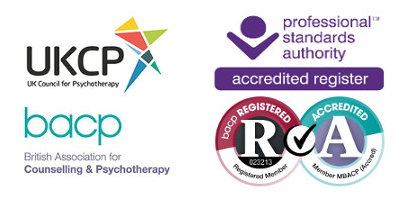Therapy for Body Image Issues with Marcus
Body Image Counselling challenges your poor self-image and helps you develop and maintain a positive view of yourself.
‘Body image’ is how you see yourself when you look in the mirror or picture yourself in your mind’s eye. Shame, body hatred and poor self-image have become increasingly prevalent in our culture, obsessed as it is with diet, body shape and sexualized imagery.
Objectification, an over-emphasis on appearance and the myth of perfection are damaging many lives.
It is very common to carry around self-defeating beliefs like:
- No-one will ever want me
- I don’t look in the mirror because I hate what I see
- I’m too fat, thin etc.
- Who could love someone like me?
If you have a negative or unhealthy body image, you may have become preoccupied with what you feel to be physical flaws and you may have a distorted perception of your physical features. You may feel uncomfortable in your body, find it difficult to accept the way you look or experience discomfort, shame or even disgust in relation to your appearance.
At its extreme this phenomenon can amount to an obsessive condition known as body dysmorphia or muscle dysmorphia, where you obsess for many hours each day about minor bodily flaws that are invisible or inconsequential in the eyes of other people, but which seem enormously important to you. When you are experiencing body image distortion or dysmorphia you may see a body in the mirror that is significantly different from your actual physical body.
These mental states can virtually take over your life, causing you to constantly check yourself and to put your energy into masking the ‘flaws’ or features that concern you. In time they can lead you to isolate yourself or misuse drugs or even have completely unnecessary surgery.
Body Image and Self-Esteem
The way you think and feel about your body is often strongly connected to your overall view of yourself. Research studies, conducted across various age groups, have consistently demonstrated a correlation between self-esteem and body image. People with low self-esteem tend to be more critical of their own appearance and are often more likely to engage in negative comparisons of themselves with others
When you have a number of different things that you value about yourself – your talents and gifts, your smile, the contribution you make – your overall view of yourself will be more stable, steady and solid.
Therapy for Body Image and Eating Disorders
Individuals who have a negative body image may subject themselves to intense internal scrutiny and become fixated on perceived physical imperfections. They may have unrealistic goals regarding weight and size and may take extreme measures, such as self-starvation, binge eating, and purging. Both ‘body image distortion’ and ‘body dissatisfaction’ are correlated with disordered or emotional eating, though the two concepts are slightly different: you might be ‘dissatisfied’ with some aspect of your body without having a ‘distorted’ or ‘dysmorphic’ perception of your physical appearance, and vice-versa.
Therapy for Eating Issues and Eating Disorders with Marcus supports you to move on from ’emotional’ or compulsive eating habits to healthy, ‘intuitive’ eating.
Body Image Issues and Men
Media can have a powerful influence on body image. Unfortunately, the standards of physical attractiveness portrayed by the media are sometimes fairly inflexible and may not be attainable by all. Many individuals compare their bodies to the types depicted as ideal, and this can lead to dissatisfaction.
Although the media have traditionally placed more emphasis on the ideal female form, an increasing number of ads and images also feature what is popularly considered the ‘perfect’ masculine shape, hence the phenomenon of the ‘gym perfect’ or ‘buff’ male physique, and the rise of the whole ‘male body image’ issue.
While women tend to report greatest concern about facial features, weight, shape, breasts, thighs and buttocks, men are generally more concerned about height, signs of thinning hair and, above all, muscle size, tone and definition. Sadly, the heightened focus on inflexible, stereotyped standards of male attractiveness coincides with an increase in the number of men who experience negative body image and become fixated on achieving the desired ‘gym perfect’ body type. To this end, they may work out to a degree that could be considered extreme, engage in excessive dieting or use anabolic steroids to increase muscle mass. In recent years, growing numbers of men have also opted to modify their features with cosmetic surgery. All of this behaviour potentially places men at risk of depression, anxiety and eating disorders.
How Therapy for Negative Body Image Issues Can Help
The reality of life is that people of all shapes and sizes find joy, self-confidence and love every day. If you find you’re so unkind toward yourself as to deny or ignore this reality, and you’re feeling stuck or trapped, then therapy can help you to understand your motivations and to overcome your difficulties.
Often there are underlying issues that emerge when the exploration of therapy gets underway. To take a relatively simple example, you might be half aware that you’re feeling deeply unworthy and even depressed following a relationship breakup, but it can be easier to obsess about hating your stomach or your nose than to let yourself go through and fully feel what’s really most troubling you.
As you work through your negative body image issues in the course of therapy, there is a very good chance that the negative thoughts you have, which are unhelpful to you and usually simply untrue, will more and more be supplanted by self-acceptance and a positive self-image, and you will become committed to loving and caring for yourself. Here are some steps you can start to take even before beginning in therapy:
- Challenge yourself to look in the mirror for a few minutes every day, without clothes if you can, and just observe yourself without judgment. If you can’t yet manage to observe with a lover’s eye, at least reduce the judging.
- Socialise with confident, happy people who are health-savvy while still accepting their bodies. Their positive self-esteem and life-affirming attitudes will start to rub off on you.
- Use daily affirmations to change the way you talk to yourself about yourself. Rather than condemning your legs as too skinny or too fat, appreciate them for helping you get places you want to go!
Take the first step and contact Marcus for a conversation about arranging Therapy for Body Image Issues.
Resources and articles on body image or eating disorders and your relationship with food
Ending The Myth of the Ideal Shape
An article by ex-bodybuilder Taryn Brumfitt who campaigns to ditch diets and end the myth of the ideal shape …read the full article
Brilliant reply to a Tinder date who said this woman was too fat
A recent article in the Indy newspaper. Read here
Love Yourself – A short Inspiratinal Video
Further Videos
Dominic Edwards | Body Dysmorphic Disorder
The Mix | Male Body Image Issues
Books
Geneen Roth | ‘Feeding the Hungry Heart’
Linda Bacon | ‘Body Respect’
Helpful Websites



